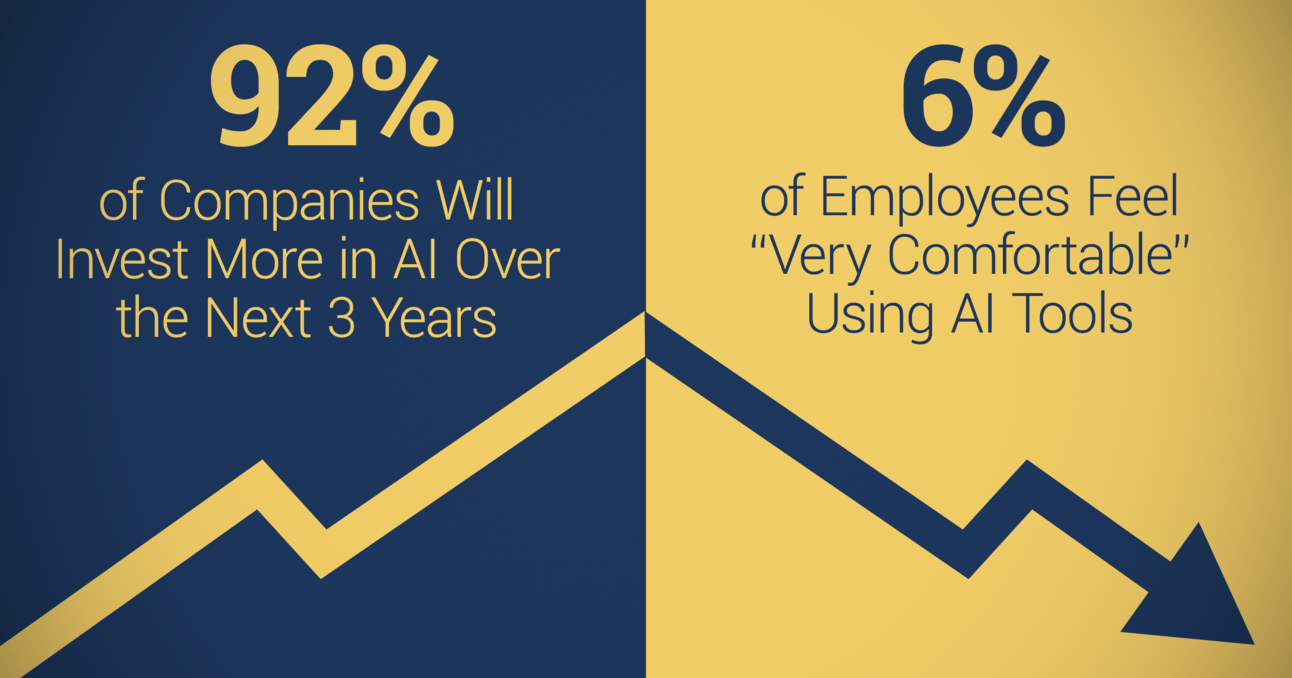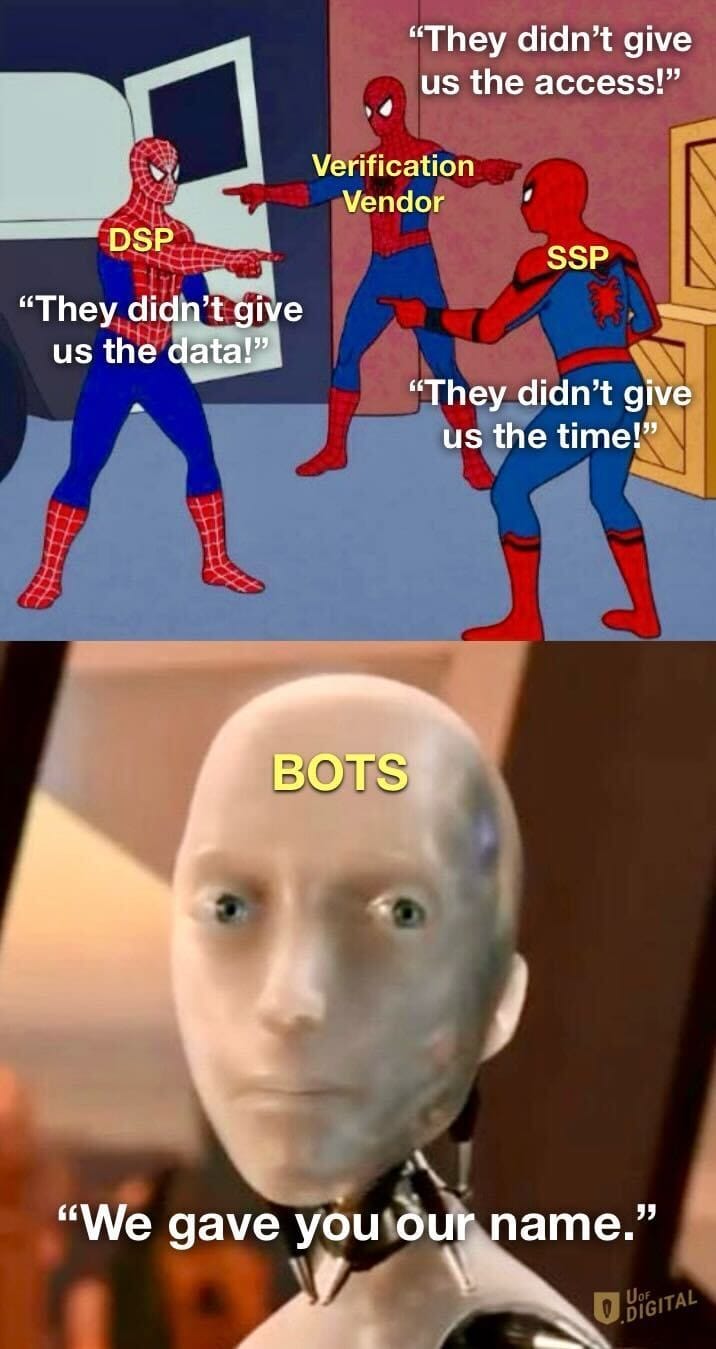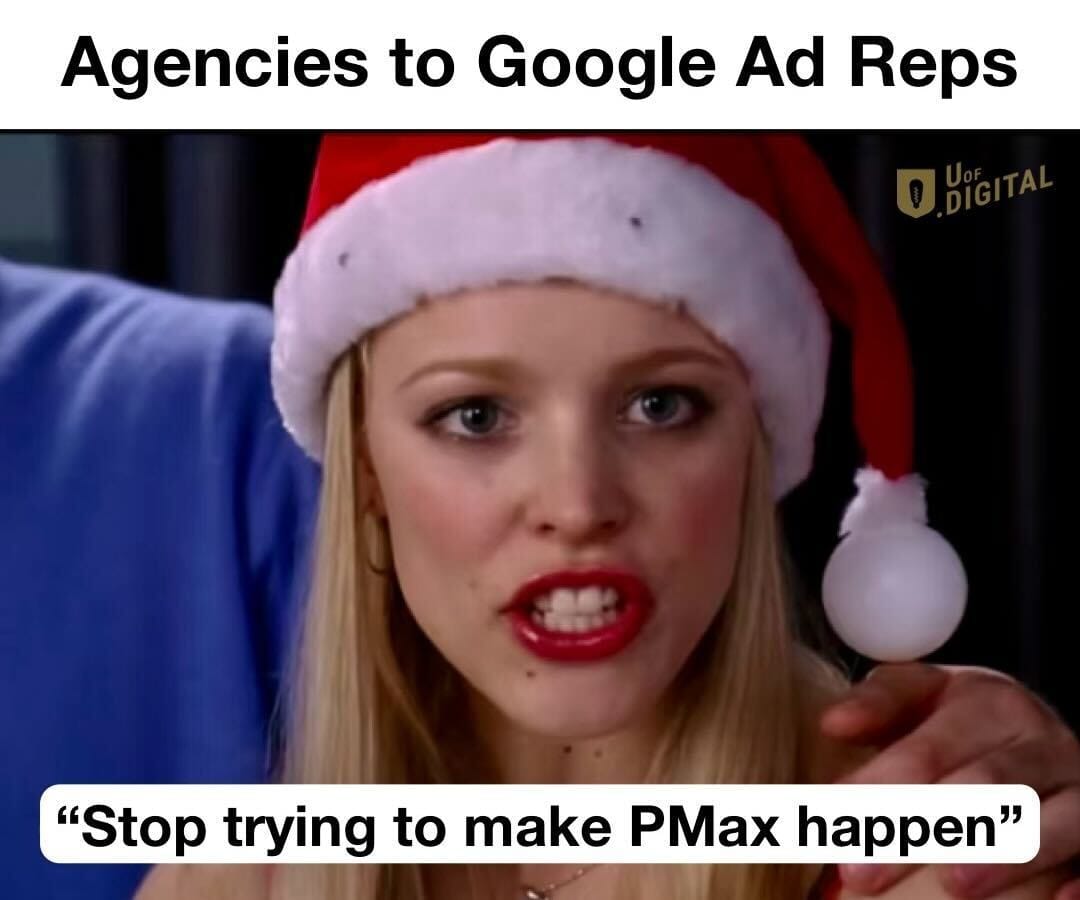
March 26th-April 1st // Estimated Reading Time: 10 minutes
Below is a roundup of last week’s notable industry news, with summaries and our opinions. We have an announcement. From now on, our newsletter will be 100% memes…

APRIL FOOLS! We do love memes though, and will be using them abundantly. This week’s edition starts with yet ANOTHER black eye for the industry, courtesy of who else: Adalytics…

U of Digital Launches The “AI Accelerator” To Empower Your Team to Thrive in the AI Era.
Teams that master AI will own the future. Yet, 54% of marketers feel overwhelmed by AI implementation (per eMarketer). U of Digital’s AI Accelerator gives your team the skills and mindset to seamlessly integrate AI—so they can move faster, think bigger, and drive real results.
Learn more about the U of Digital AI Accelerator here.
Contact us to enroll your team!


Top Stories 👁
Efforts to Weed Out Fake Users for Online Advertisers Fall Short🔒
Source: Wall Street Journal
March 28th, 2025
Summary: The Wall Street Journal has published a report based on Adalytics research claiming that the digital ad industry's top verification companies—DoubleVerify, Integral Ad Science (IAS), and Human Security—are failing to catch bots in digital advertising, even when those bots openly identify themselves.
Here's the situation in plain English: When you browse the web, your browser sends information about itself called a "user-agent string" (basically saying "I'm Chrome on Windows" or "I'm Safari on iPhone"). Legitimate bots used for things like website archiving or security scanning typically announce themselves clearly in this string (saying something like "I'm Googlebot" or "I'm a URLScan bot"). According to Adalytics, verification vendors are missing these self-declared bots and allowing advertisers to waste money showing ads to them.
The WSJ report states that at least 40% of web traffic is fake users or bots (according to Cloudflare), and Adalytics found "tens of millions of instances over seven years" where ads from major brands like Hershey's, Tyson Foods, and T-Mobile were served to bots across thousands of websites.
A critical issue highlighted is whether verification vendors have access to necessary data to spot bots before an ad is purchased. The article claims that services from DoubleVerify and IAS that try to catch bots before an advertiser bids on an ad (called "pre-bid filtering") don't receive user-agent information from some major ad-buying platforms—meaning they lack crucial information needed to identify bots in real-time.

DoubleVerify has issued a strong rebuttal, claiming the WSJ article and Adalytics report are "inaccurate and misleading." Their defense:
1. They correctly identified the bot traffic in every example shared before publication
2. When they identify bot traffic, those impressions are removed from billable counts reported to advertisers
3. The WSJ doesn't cite a single example of a "general invalid traffic" (GIVT) impression that DoubleVerify actually failed to detect
4. In cases where pre-bid filtering can't occur, their post-bid systems identify bots and ensure advertisers don't pay for those impressions
This report comes just weeks after Adalytics' February exposé showing ads appearing next to child sexual abuse material (CSAM), which prompted letters from U.S. Senators to the same verification vendors. The recurring theme across both reports: Are verification vendors providing the protection that advertisers are paying for?
Opinion: This verification controversy highlights a fundamental problem in digital advertising: the gap between what's promised and what's delivered. While verification vendors market both pre-bid and post-bid capabilities, the industry has allowed technical complexity to obscure a simpler truth - marketers are often not getting the proactive protection they believe they're paying for.
Yes, there’s plenty of blame to go around. Verification companies bear a lot. But we should recognize this as a symptom of three deeper industry challenges:
The transparency deficit: Digital advertising has evolved into a labyrinth of technical systems that few fully understand. This complexity has created a knowledge asymmetry that allows vendors to make claims that buyers can't effectively evaluate.
Misaligned incentives: The current ecosystem rewards volume, speed, and antiquated success metrics over quality and accuracy. Ad platforms are incentivized to process as many transactions as possible, even if that means limiting the data available for proper verification.
The accountability gap: When problems emerge, the finger-pointing begins. Verification vendors blame DSPs for insufficient data access, DSPs blame SSPs for insufficient data access, DSPs blame verification vendors for technical limitations, and marketers are left wondering who's actually responsible.

The solution isn't just better educated marketers who can ask the right questions (though that helps). We need structural reform:
Standardized access protocols: Industry bodies should establish minimum requirements for data sharing between platforms and verification services.
Transparency requirements: There needs to be clear disclosure of exactly which methods (pre-bid vs. post-bid) are being used in which environments, with performance metrics for each.
Independent testing: Third-party audits that use controlled bot traffic to evaluate the effectiveness of verification systems across the entire ecosystem. (Yup, we need verification for verification.)
The companies that will win in the long run are those that embrace radical transparency about their capabilities and limitations. In a marketplace built on trust, hiding behind technical complexity should be a losing strategy.

Other Notable Headlines
With a TikTok ban looming, Trump signals a deal will come before April 5 deadline - President Trump says he’ll have a TikTok deal in place before Saturday’s deadline, but hasn’t said who the buyer might be, though there are “a lot of potential buyers.” Congress passed a law last year to force China-based parent ByteDance to sell TikTok or face a ban. When Trump took office, he delayed enforcement of the ban by 75 days. TikTok has many potential suitors, including Oracle, AI search browser Perplexity, "Shark Tank" host Kevin O'Leary, and an investment group led by the former owner of the Los Angeles Dodgers, among others.

Despite the uncertainty, many advertisers continue to invest🔒in the platform, and millions of users are shopping on it. TikTok attracted nearly 12M US buyers in 2024, overtaking Pinterest and Meta despite TikTok Shop only launching in 2023. TikTok Shop keeps users in the app and leverages the platform's vaunted algorithm to make product recommendations, racking up $32M in sales in the US alone.
AppLovin CEO urges investors to ‘dig deeper’ after short-seller report, company retains Alex Spiro - A third short-selling company has published research raising concerns about AppLovin's AI-powered platform AXON, contributing to a 20% decline in the company's share price. AppLovin has been ad tech's biggest Wall Street success story over the last year, with a stock price that surged more than 700% in 2024. AppLovin CEO Adam Foroughi wrote a letter to shareholders in response to the short-seller reports, defending the company’s tech and imploring investors to take a deeper look at the claims, which include allegations that AppLovin extracts proprietary IDs from platforms like Meta and TikTok, violating app stores' terms of service. AppLovin has hired Alex Spiro from law firm Quinn Emanuel to investigate the short-seller activity. Analysts like Loop Capital still give AppLovin the thumbs up, saying its performance can easily be confirmed by simply talking to performance marketers and measurement companies.
Advertisers are starting to walk away from platforms’ AI solutions that once promised them everything🔒- Some advertisers are reducing their spending on AI-powered tools like Google's Performance Max and Meta’s Advantage+. While the ad-buying tools have made it easier to run campaigns and typically delivered results, some buyers believe there is simply too much opacity about what they're actually buying and where ads are running. Plus, it's common to hit a ceiling where spending more results in diminishing returns. The numbers of marketers leaving seem to be small, but this comes as agencies increasingly complain that Google Ads reps are becoming more aggressive in pushing Performance Max and generative AI products. Rather than the typical quarterly check-ins they're used to, agencies say Google Ads reps are bugging them sometimes multiple times a day with recommendations that don't always mesh with client goals. If agencies ignore them, the reps sometimes contact clients directly.

Omnicom Clients Can Get $200K Value Boost for Advertising on X, Leaked Docs Show🔒- Many advertisers left X in the years after Elon Musk bought the platform for $44B, gutted staff, and loosened content moderation policies. Now, the platform is trying to lure brands back by offering 50% in added value to Omnicom clients who didn't advertise on X last year, up to $200K. Other perks include a 15% media credit for buying X inventory through auctions, a 15% discount for buying premium inventory such as X’s Immersive Video Takeovers and Timeline Takeovers, and up to $10,000 per campaign for third-party verification. Omnicom and other agency holding companies like WPP, IPG, and Publicis have made annual spending commitments with X or are in the process of doing so as everyone tries to curry favor with Musk, who is influential in the Trump administration.
Meanwhile, Musk has sold X to xAI, a privately held AI company he owns in a $33B all-stock deal. The deal values xAI at $80B, a big jump from four months ago when it was valued at $50B. “It’s funny money,” UCLA professor Andrew Verstein told the Wall Street Journal🔒.“It’s like using Monopoly money to buy Pokémon cards.”

source: xAI

Other Notable Headlines
(that you should know about too) 🤓
Braze Announces Agreement to Acquire OfferFit - Customer data platform Braze is paying $325M for OfferFit, an AI decisioning company.
France’s antitrust watchdog fines Apple for problems with App Tracking Transparency - France fined Apple $162M for its ATT rollout, which it said hurt small publishers and bombarded users with consent pop-ups, making navigation “excessively complex” for users. While monetarily, this is a drop in the bucket for Apple, this is potentially a HUGE inflection point for Apple’s privacy crusade.
YouTube Now Worth as Much as $550B, Analysts Say: ‘New King of All Media’ - YouTube could pass Disney this year as the world's largest media company. It represents as much as 30% of Alphabet's current valuation, according to MoffettNathanson.
Ad-Spending Forecaster Magna Cuts Growth Outlook, Citing Consumer Confidence - Trump's trade wars are lowering consumer sentiment and economic predictions, leading Magna to dial back its 2025 ad sales growth projection to 4.3% from 4.9% in December.
Google settles $100 Million advertising dispute - The 14-year battle centered on Google's alleged manipulation of AdWords between 2004 and 2012, when advertisers claim it artificially reduced their discounts through Smart Pricing and served ads beyond their designated geographic location.
Meta moves into controversial ad space: principal-based trading🔒- Meta is pitching agency holding companies about buying its inventory in bulk and reselling it to clients with a markup.
Zeta Global Launches AI Agent Studio with Agentic Workflows, Pioneering the Next Frontier of AI-Powered Marketing - Zeta's AI Agent Studio is a suite of generative AI tools, including Agentic Workflows, which marketers can use to chain AI agents together to automate complex tasks.
Josh Line, Former Paramount Chief Brand Officer, Joins Yahoo as CMO - Line's marching orders: "reignite love and cultural impact" for Yahoo, which is now owned by private equity firm Apollo Global.


That’s It For This Week 👋
The U of Digital Weekly Newsletter is intended for subscribers, but occasional forwarding is okay!
To subscribe visit Uof.Digital/Newsletters or contact us directly for group subscriptions.
And remember, U of Digital helps teams drive better outcomes through structured education on critical topics like programmatic, privacy / identity, CTV, commerce media, AI, and more. Interested in learning more about how we can supercharge your team?
Thanks for reading!
